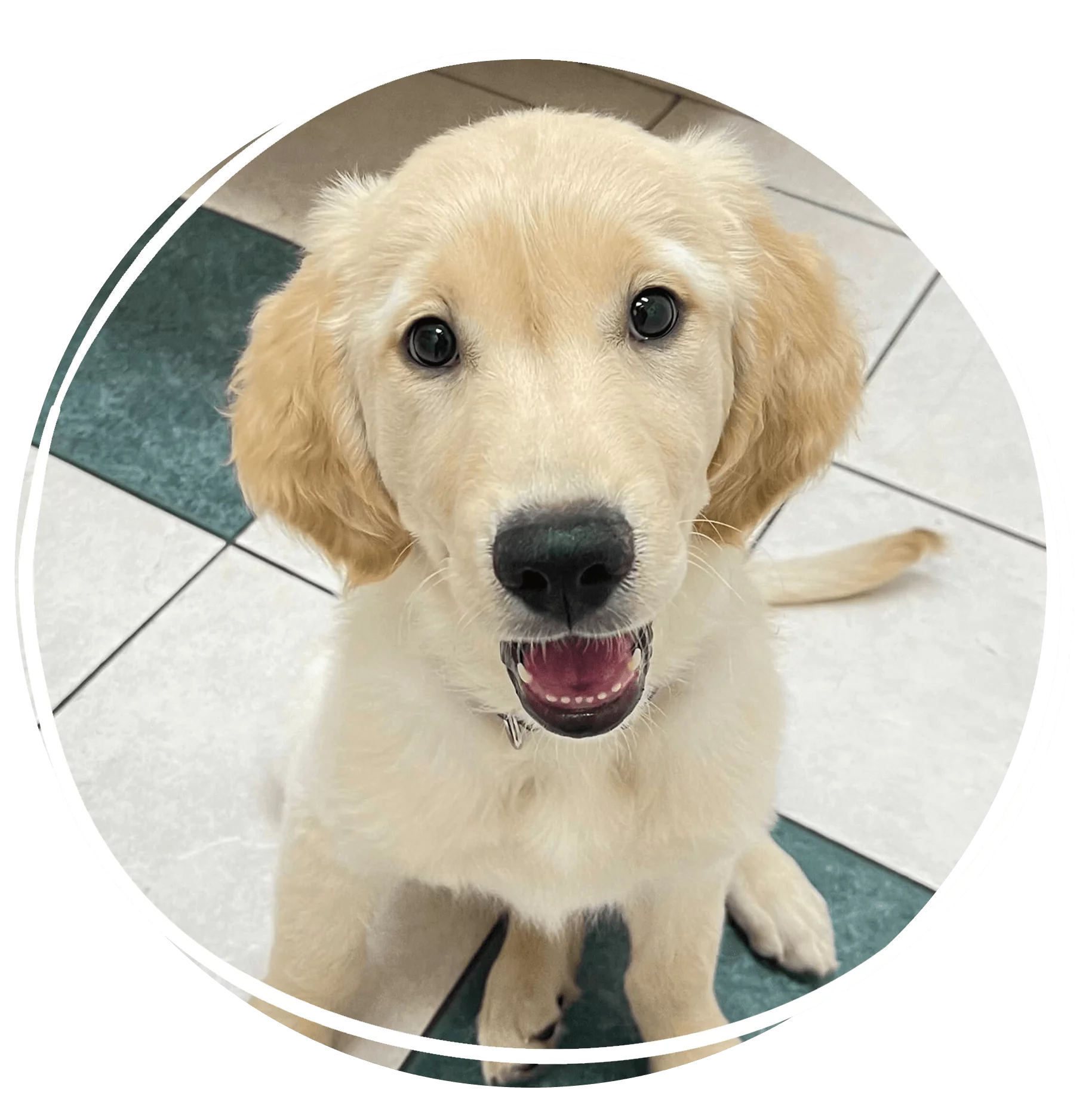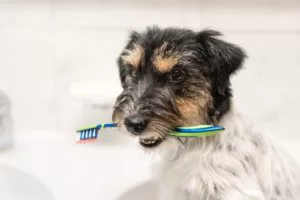
Our Veterinary Blog
How Often Do Dogs Need Teeth Cleaning?
How often should a dog have their teeth professionally cleaned? The answer depends on your dog’s age, breed, size, and lifestyle. While some dogs may need dental cleanings earlier or more frequently, others may go longer between procedures with proper at-home care.
Dental cleanings and procedures allow the veterinarian to closely inspect your dog’s mouth, teeth, oral cavity, and gums, and also allow the veterinarian to take radiographs to look for possible problems not visible to the naked eye. Continue reading this article written by the veterinary experts at Lakeland Animal Clinic in Lakeland, FL learn more about dog teeth cleaning.

How often should I have my dog’s teeth cleaned?
The question of how often you should have your dog’s teeth cleaned depends on several factors, such as age, breed, and lifestyle of your dog.
1. Age
Older dogs tend to need more dental care than younger dogs, and the reason is simply that time, diet, and eating habits contribute to oral decay over time. It’s always a good idea to have annual exams with your veterinarian if your dog is over seven years of age to make sure their teeth and gums are healthy.
2. Breed and size
Smaller dogs and toy breeds may need dental cleanings as young as two years of age, but it’s important to keep in mind that most dogs don’t need a dental cleaning before the age of six or seven. Small dogs need dental cleanings more often than larger dogs because their teeth, relative to their mouths, are big, which causes overcrowding. Another reason is that smaller breeds (such as Yorkies) are notorious for hanging onto their baby teeth in addition to their adult teeth, which adds to overcrowding, which then leads to more places for tartar build-up.
Dogs with short faces and noses, such as Pugs, Bulldogs, and Shih Tzus are more at risk for dental disease because they are prone to deformed permanent teeth, which gives more places for tartar to hide, and odd-shaped tooth roots that can predispose them to endodontic disease. Small dogs have very shallow tooth roots, so any kind of periodontal disease can affect them more severely than bigger dogs. Another breed-related dental issue is something called malocclusion, where the jaws are misaligned so that they don’t connect properly. This can lead to a predisposition to dental disease and tartar build-up.
Larger dogs don’t tend to have the dental issues that small dogs have, but they are prone to broken or fractured teeth due to strong chewing habits, and this can cause mouth pain, lack of appetite, and irritable behaviors. If you schedule regular exams with your veterinarian, they will be able to tell you when and how often your dog should get dental cleaning.
3. Lifestyle
How often you should have your dog’s teeth cleaned also depends on lifestyle and at-home dental health. For example, if you brush your dog’s teeth regularly, give your dog dry food, or a dental diet, these precautions may help in extended periods between professional cleanings. Also, if you have a dog who is not a chewer, and eats mostly soft food, they may need more frequent cleanings.
Why would my dog need a dental cleaning?
Dogs require regular dental care, just like we do. One of the biggest issues with dogs is the development of periodontal disease, which is caused by plaque. Dental plaque is formed from saliva, food, cells, and other things that form on the teeth minutes after eating, and as it builds up, it can lead to gum inflammation, which can destroy gum tissue and bone. Periodontal disease in dogs occurs five times as often as it does in people, and one study has shown that more than 80% of dogs over three years old develop periodontal disease. If periodontal disease progresses, it sets your dog up for loose teeth, bleeding gums, a painful mouth, and systemic infections such as endocarditis, which is when bacteria enters the chambers of the heart and causes inflammation and cardiac problems.
What happens during a dental cleaning?
Because most dental procedures are performed under general anesthesia, your veterinarian will be sure to conduct a thorough physical examination beforehand. Depending on the age and health of your dog, your veterinarian may recommend blood work before the procedure to ensure that your dog’s liver and kidneys can adequately process anesthetic agents. If the blood work is good, and any other diagnostics are normal, then your dog will be ready for a dental cleaning.
The process usually entails the placement of an IV (intravenous) catheter, IV fluids, a pre-anesthetic dose to help your animal relax, and then the induction period when your dog is placed under anesthesia. Just as with humans undergoing general anesthesia, your veterinarian will closely monitor vital signs such as blood pressure, oxygen saturation, heart function, body temperature, and other cardio-respiratory values.
Your veterinarian will conduct a thorough oral exam, just as a human dentist would, and may also take mouth radiographs. After the procedure, your veterinarian will wake up your dog and place them in recovery where post-procedure vitals are monitored. Most veterinarians do their dental procedures in the morning and send their patients home at the end of the day.
How can I help keep my dog’s teeth healthy at home?
If your dog will let you, brushing your dog’s teeth is an effective way to help keep your best friend’s teeth and gums healthy. There are many products available that can help you improve your dog’s oral health, such as dental chews, water additives, enzymatic toothpaste, and specially formulated dental diets. Consult your veterinarian as to which practices would be best for you and your dog. Call Lakeland Animal Clinic at (863) 688-3338 or book your dog’s appointment online!
Recent Posts
About Us
Family is family, whether it has two legs or four. At Lakeland Animal Clinic, we've spent the last 40 years healing and caring for your pets. As a family-operated practice, we know that family is about more than simply being related. Animals give us the ability to develop strong bonds and feel great compassion for a fellow living creature.
